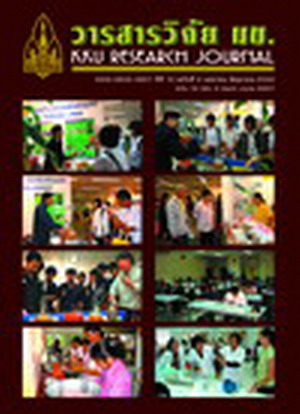Mutagenicity and Antimutagenicity Tests of Extracts from Thai Traditional Medicines(Thai)
Main Article Content
Abstract
This study aimed to investigate the mutagenicity and antimutagenicity of five extracts of commonly consumed Thai traditional medicines including Nawakot (NK), Intarajuk (IJ), Prasarthong (PT), Koklan (KK) and Sahasthara (ST). All extracts have no mutagenic activity on Salmonella typhimurium TA98 and TA100 both in the conditions with and without metabolic activation by rat liver enzyme or S-9 fraction. In contrast, all extracts showed antimutagenic activity against three standard mutagens including 2-aminoanthracene (2-AA), 2-aminofluorene (AF2) and 4-nitroguinolene–1-oxide (4-NQO). NK and KK extracts antagonized the mutagenicity of 2-AA in the presence of metabolic activation in both TA98 and TA100. IJ extract prevented the effect of AF2 in the absence of S-9 in TA98. In addition, it also prevented the effect of 2-AA in the presence of S-9 both in TA98 and TA100. In the absence of S-9, PT extract showed antimutagenicity against AF2 in TA98 and 4-NQO in TA100. ST extract can antagonize the effect of AF2 and 2-AA both in TA98 and TA100 as well as 4-NQO in TA98. We find that all five extracts of Thai traditional medicines give negative results on Ames’ test which is the recommended standard method for detecting the toxicity of consumable chemicals or products. Therefore the extracts are perhaps safe to the consumer. Moreover, these extracts may help to lower the toxicity of contaminated mutagenic chemicals.


